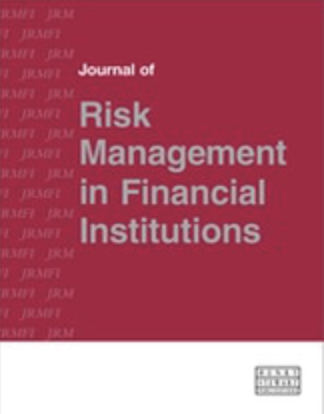Boards of directors are pivotal in steering companies towards long-term success, ensuring adaptability and competitiveness in evolving markets with challenges as geopolitics sustainability including climate change, and rapid advancement of AI. This entails a delicate balance between seizing new opportunities and optimizing existing operations, underpinned by robust dynamic capabilities.
We are proud to announce the publication of our peer reviewed academic paper, “Board Dynamic Capabilities: Developing Board Practices that impact Corporate Renewal and Performance” in a special issue of the Journal of Risk Management dedicated to Corporate Governance and the Board.
Our research delineates the critical dynamic capabilities that boards must cultivate and apply, demonstrating for the first time their direct correlation with enhanced corporate outcomes.This publication underscores the indispensable role of boards in fostering corporate renewal and superior performance.
The study underscores that boards must engage in Sensing, Pivoting, and Aligning to govern effectively and support sustainable value creation amidst market uncertainties.
- Sensing encapsulates the board’s proactive role in scanning for potential opportunities and threats, both internally and externally.
- Pivoting involves strategic guidance by the board to navigate through these insights, exploring innovation avenues and strategic shifts.
- Aligning is crucial for the practical application of these insights, necessitating adjustments in the organization, its resources, and strategies.
Empirical evidence from interviews, workshops, and surveys among board members validates the significance of these dynamic capabilities in driving innovation and economic performance.
Sensing and pivoting are shown to enhance innovation, although their immediate impact on economic performance may be adverse without the integrative process of aligning, which is key to effective execution and positive economic returns.
Our findings advocate for boards to proficiently harness these capabilities to meet their governance responsibilities more efficiently, contributing to enduring corporate governance, innovation and positive firm results.
The research has been done in multi-year research projects and collaboration between Professor Ludo van Der Heyden INSEAD & IMD, Professor Mats Magnusson and Doctoral Student Henrik Forzelius from Royal Institute of Technology, Affiliated Researcher Fernanda Torre, CEO Next Agent, Partner Digoshen and Operations Director Boards Impact Forum and Liselotte Engstam, Affiliated Researcher, Chair Digoshen and Chair Boards Impact Forum.
We want to extend our deep gratituted to David R Koenig, President and CEO of DCRO Institute and Julie Kerry, Publisher at Henry Stewart Pubiications for inviting us to contribute.
We will also arrange a webinar hosted by Boards Impact Forum on the topic, that will be announced shortly.
More about the special issue of Journal of Risk Management dedicated to Corporate Governance and the Board.
This issue of the Journal of Risk Management in Financial Institutetions, Volume 17, Number 2, for Spring 2024, covers a range of topics centered around board responsibilities, financial resilience, and risk management, spanning editorial, opinion/comment, and practice papers.Here’s a summary of its content:
– Editorial by David R. Koenig discusses the importance of embracing risk as a critical duty of care for board members. The piece emphasizes the need for boards to actively engage with risk to fulfill their governance responsibilities effectively.
– Opinion/Comment by Ingrid Vasiliu-Feltes focuses on the necessity of building digital trust and fostering responsible innovation to safeguard financial resilience. It underscores the importance of ethical considerations and trustworthiness in digital advancements.
Practice Papers include a variety of topics:
– Liselotte Engstam, Henrik Forzelius, Mats Magnusson, Fernanda Torre, and Ludo Van Der Heyden present strategies for developing dynamic board capabilities that influence corporate renewal and performance positively. Link to Paper HERE
– David Suetens discusses the emergence of sustainability oversight committees in modern board governance, offering practical considerations for their implementation and effectiveness.
– Christopher E. Mandel and Soubhagya Parija explore the concept of risk appetite as a fundamental aspect of board risk oversight, emphasizing its significance in strategic decision-making.
– Sonjai Kumar, Purnima Rao, and Munim Barai examine trends and future directions in enterprise risk management within the insurance industry, highlighting evolving challenges and opportunities.
– Varda Sardana and Shubham Singhania provide a critical evaluation of six decades of deposit insurance in the Indian banking sector, reflecting on its role in ensuring stability.
– Francis Boateng-Frimpong, Amel Bentata, and Rémy Cottet investigate the impact of the country and sector effect on global equity returns during the COVID-19 pandemic, distinguishing between developed and emerging markets.
Each section aims to provide valuable insights and practical guidance on how boards can navigate the complex landscape of risk, sustainability, and financial resilience in a rapidly changing world.
Find a link to the online version Journal of Risk Management in Financial Institutions: Ingenta Connect Table Of Contents
About Boards Impact Forum and the blogpost
This blogpost is originally shared at the blog of of Digoshen, www.digoshen.com.
Events arranged by Boards Impact Forum in collaboration with World Economic Forum (Non Profit Board Network, partnering with Board Networks , INSEAD Corporate Governance Centre, Digoshen and Next Agents )










Recent Comments